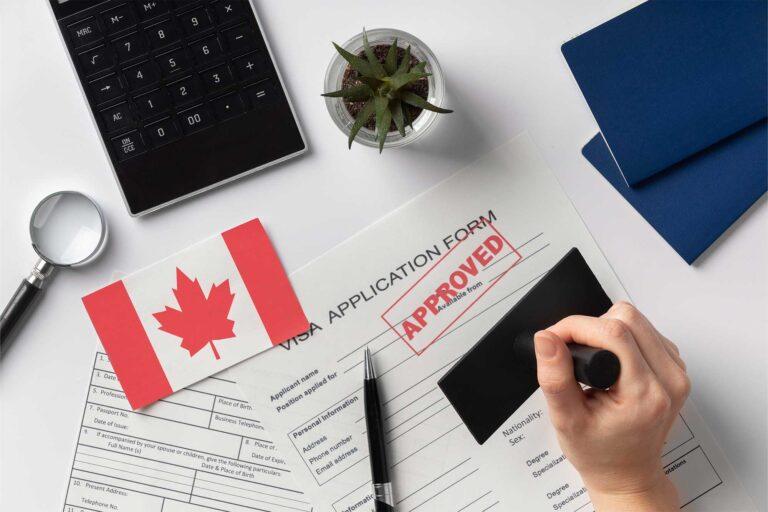How long does spousal sponsorship take?
One of the first questions I hear from couples going through the spousal sponsorship process is: “How long is this going to take?” And honestly, it’s a fair question. When you’re separated from your partner and trying to build a life together in Canada, every day feels like a month. Waiting isn’t just frustrating—it’s emotionally exhausting. So let’s talk timelines, and more importantly, what can speed you up or slow you down.
Inland versus Overseas Spousal Sponsorship
As of now, the average processing time for inland spousal sponsorship is about 12 months. For outland sponsorship, it’s roughly the same, depending on the visa office handling the file. That said, not all cases are equal. Processing times can stretch beyond a year for complex files, or be faster for those that are clean, well-documented, and straightforward.
I always tell clients this: there’s the “official” timeline, and then there’s the reality of your file. If your application is missing documents, if your forms are inconsistent, or if the immigration officer isn’t convinced your relationship is genuine, you can expect delays—sometimes serious ones. On the other hand, a complete, well-prepared application that clearly tells your story and checks every box? That gives you your best shot at a smooth, on-time approval.
Another factor to consider is whether you’re applying inland or outland. Inland applicants can typically remain in Canada during processing and may qualify for an open work permit while they wait. Outland applicants, meanwhile, might be outside Canada but often benefit from slightly faster processing depending on the visa office and the country of origin.

Spousal Sponsorship Documents
Here’s what most people don’t realize: how you prepare your file can directly impact your timeline. I’ve seen messy applications bounce back months later with requests for missing info. I’ve also seen perfectly strong couples face delays simply because their relationship narrative wasn’t clearly laid out. Immigration officers are human. They’re reading your story through a pile of papers. Make it easy for them to say yes.
One trick? Submit your relationship documents in a chronological, logical way. Photos, call logs, flight tickets, leases—all of it should flow like a timeline. Think of your application as a documentary: it needs to make sense from beginning to end. Don’t dump everything in a pile. Organize it.
You should also factor in country-specific background checks, security clearances, and even how quickly your local visa office responds to inquiries. Some countries have longer processing times due to high volume or local delays, and there’s not much you can do about that—but knowing it ahead of time can help set realistic expectations.
And let’s be honest, immigration backlogs, COVID-related delays, or global events can impact timelines too. IRCC does their best to stay on schedule, but it’s not always predictable. That’s why we focus on controlling what we can—a strong application, a clear relationship story, and a well-organized file.
If you’re sitting there refreshing your inbox every day, know this, it’s normal. Waiting is hard. But the more strategic you are upfront, the less likely you are to face roadblocks later. And if you’re feeling overwhelmed, remember—you don’t have to do it alone.
At Akrami & Associates, we help clients not only prepare powerful applications but also manage expectations with real-world insight. We’ll tell you what to expect, how to prepare, and how to handle the wait with confidence. Because when you’re building a future with someone you love, you deserve clarity, not confusion.
How to avoid Spousal Sponsorship Mistakes
If you’re thinking of sponsoring your spouse to come to Canada, first off, congratulations. Love is a beautiful thing, and Canada actually has a fairly generous spousal sponsorship program. But here’s the kicker—a surprising number of applications get refused every year. Not because the couple isn’t real, but because of simple, avoidable mistakes.
So let’s cut through the confusion. Below, I’m diving into some of the most common spousal sponsorship mistakes I’ve seen and how you can dodge them like a pro. If you’re serious about bringing your partner to Canada, grab a coffee and let’s break this down together.
Spousal Sponsorship Questions and Answers
Q: What’s the #1 reason spousal sponsorship applications get refused?
A: In my experience, it’s lack of proof of genuine relationship. You might know your relationship is real, but the officer reviewing your file doesn’t know you from Adam. Submitting a marriage certificate alone isn’t enough. You need photos, chat logs, joint finances, letters from family, and more. Think of your evidence like a love story told through documents.
Q: Can weak or inconsistent forms cause refusal too?
A: Absolutely. You’d be amazed how many people rush through the forms and end up contradicting themselves. If your forms say you met in 2019 but your chat logs show conversations in 2017, that’s a red flag. Consistency across all documents is key. Double-check everything. Then have someone else triple-check it.
Q: What if we’re married but don’t live together yet?
A: That’s okay—but it raises questions. You’ll need to explain why. Maybe it’s due to visa issues or work commitments. Whatever the reason, address it head-on in your relationship narrative and supporting documents. And yes, include proof that you’re in regular communication (video calls, flights, gifts, anything tangible).
Q: Do I need to show we’ve lived together?
A: If you’re applying under the common-law partner category, yes—you must prove you’ve lived together for at least 12 consecutive months. If you’re legally married, cohabitation isn’t required but it can strengthen your case.
Q: We had a traditional wedding with no legal registration. Can we still apply?
A: Not under “spouse” sponsorship. In that case, you may qualify under common-law or conjugal partner categories depending on your circumstances. But it’s risky to assume—get legal advice to see where you stand.
Q: How much financial support do I need to show?
A: Interestingly, for spousal sponsorship, there’s no minimum income requirement (unless you’re sponsoring a dependent child who has a child of their own). That said, IRCC still wants to see that you can support your spouse and that you’re not on social assistance. So be honest about your financial situation.
Q: We had a short courtship. Is that a problem?
A: It can be. A whirlwind romance isn’t a dealbreaker, but you’ll need stronger evidence to prove it’s real. Length of relationship, communication history, shared responsibilities—these help paint the picture. The more unusual your story, the more you need to document it.
Q: Can a refusal affect future applications?
A: Yes. If you’re refused once, it goes on record. A poorly prepared application can damage your credibility. That’s why it’s critical to get it right the first time.
What About Common-Law and Conjugal Sponsorship?
If you’re not married, don’t panic—Canada recognizes common-law and conjugal partnerships too.
Q: What’s a common-law partner under Canadian immigration?
A: Someone you’ve lived with in a marriage-like relationship for at least 12 months continuously. You’ll need to show shared bills, joint lease, joint bank accounts, or affidavits from people who know you.
Q: And conjugal partner?
A: This category is for people who can’t marry or live together due to serious barriers (like legal, cultural, or immigration obstacles). It’s harder to prove and often misunderstood. You must show a deep commitment and explain clearly why living together or marrying wasn’t possible.
We Can Help!
If you’re in love and want to build a life in Canada, the spousal sponsorship program is a powerful way to do it. But it’s not just paperwork—it’s a narrative. You’re telling your story. So tell it clearly, truthfully, and with supporting documents that leave no doubt.
And if you’re unsure? Reach out. This is too important to leave to chance. At Akrami & Associates, we’ve helped thousands of couples bring their lives together under one roof in Canada. We’d be honoured to help you too.
Because where there’s love, there should always be a way!
Contact Us Popup
Latest Immigrations News

December 5, 2025
THE ULTIMATE GUIDE TO HUMANITARIAN & COMPASSIONATE (H&C) APPLICATIONS IN CANADA
THE ULTIMATE GUIDE TO HUMANITARIAN & COMPASSIONATE (H&C) APPLICATIONS IN CANADA Understanding When, Why, and How to Apply for Permanent Residence on Humanitarian Grounds What Is an H&C Application? A Humanitarian and Compassionate (H&C) application is a last-resort pathway for individuals who are in Canada and do not [...]

September 11, 2025
Canada Super Visa: Step-by-Step Guide for Parents and Grandparents
For many Canadian citizens and permanent residents, bringing parents or grandparents to Canada for extended visits is more than just a wish, it’s a heartfelt need. While most people first consider the traditional visitor visa, there is another option designed specifically for family reunification: Super Visa applications. [...]

August 23, 2025
Intra-Company Transfer (ICT) Work Permit, Your Complete Guide to Working in Canada
For multinational companies, moving key talent across borders is often essential for growth and operational success. The Intra-Company Transfer (ICT) Work Permit provides a streamlined pathway to bring experienced employees to Canada without the time-consuming Labour Market Impact Assessment (LMIA) process. For foreign professionals, it’s more than [...]

Book a Conslutation
One of our Representatives will
assist you with your matter. Book Now!
Click here

Call us for
more Information
+1-416-477-2545
Toll Free: 1-877-820-7121
Click here

Write Us (Online Form)
Complete our form and one of our
Representatives will contact you.
Click here
Subscribe To Our Newsletter





